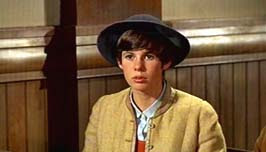
The $1.4 trillion spending package signed into law provides plenty of cause for lamentation, as Scott Sumner has discussed. One provision raises the federal legal age for purchase of tobacco and e-cigarettes from 18 to 21. Although 20 states had already set the age at 21, the new provision raises it in the other states.
In the 1830s, the great Frenchman Alexis de Tocqueville described the American character, outside the slave states. His description probably continued to fit pretty well right up to the twentieth century. Much that he described we Americans today might well be glad to have shed: the naïveté, the insensibility to art and refinement, the repression of aesthetic delights, the conformism. But what of the goodwill, the hope, the self-reliance, the pride in oneself?
Tocqueville described Americans in his first great work Democracy in America. Can we see in Americans today the following characteristics?
- In America there is, strictly speaking, no adolescence: at the close of boyhood the man appears and begins to trace out his own path… [A]s soon as the young American approaches manhood, the ties of filial obedience are relaxed day by day; master of his thoughts, he is soon master of his conduct…. [T]he son looks forward to the exact period at which he will be his own master, and he enters upon his freedom without precipitation and without effort, as a possession which is his own and which no one seeks to wrest from him…. (2:202–3)

Mattie Ross from “True Grit” (1969), played by Kim Darby
- Long before an American girl arrives at the marriageable age, her emancipation from maternal control begins; she has scarcely ceased to be a child when she already thinks for herself, speaks with freedom, and acts on her own impulse.… [T]he vices and dangers of society are early revealed to her; as she sees them clearly, she views them without illusion and braves them without fear, for she is full of reliance on her own strength, and her confidence seems to be shared by all around her…. Instead, then, of inculcating mis-trust of herself, they constantly seek to enhance her confidence in her own strength and character. (2:209–10)
- In the United States, as soon as a man has acquired some education and pecuniary resources, either he endeavors to get rich by commerce or industry, or he buys land in the uncleared country and turns pioneer. All that he asks of the state is not to be disturbed in his toil and to be secure in his earnings. (2:263)
- When a private individual meditates an undertaking, however directly connected it may be with the welfare of society, he never thinks of soliciting the cooperation of the government; but he publishes his plan, offers to execute it, courts the assistance of other individuals, and struggles manfully against all obstacles. (1:98)
- When an American asks for the cooperation of his fellow citizens, it is seldom refused; and I have often seen it afforded spontaneously, and with great goodwill. (2:185)
- [I]n no country does crime more rarely elude punishment. The reason is that everyone conceives himself to be interested in furnishing evidence of the crime and in seizing the delinquent. (1:99)
- In the United States professions are more or less laborious, more or less profitable; but they are never either high or low: every honest calling is honorable. (2:162)
- In the United States hardly anybody talks of the beauty of virtue, but they maintain that virtue is useful and prove it every day. (2:129)
Tocqueville saw a people with self-reliance and self-respect. One of the significant themes of his work is that these traits flowed from the fact that American government at the time was small, decentralized, and permitted much freedom: “Americans believe their freedom to be the best instrument and surest safeguard of their welfare” (2: 151).
Tocqueville would not have been surprised to learn that as of 2020 the national government in America would fix a legal age of 21 to purchase tobacco. He prophetically warned both the French and the Americans that a suffocating despotism might be in their future. Still, he would lament its actuality.
And he would encourage those who continue to believe in individual liberty, dignity, and responsibility to preserve and promote those virtues.
Dan Klein is professor of economics and JIN Chair at the Mercatus Center at George Mason University.

READER COMMENTS
David Henderson
Jan 13 2020 at 2:57pm
Wow! This actually sounds like how I grew up. I became financially independent (except for a small 3-year contribution to my rent from my father) at age 16.
Doesn’t sound like today though.
David Henderson
Jan 13 2020 at 3:00pm
Oh, I forgot to answer the question that’s the title of your post. Here it is: Sacre bleu.
Mark Brady
Jan 13 2020 at 6:11pm
And let us not forget Miss Harriet Martineau (1802-1876), who in Society in America (1837), wrote,
“For my own part, I delight in the American children; in those who are not overlaid with religious instruction. There are instances, as there are everywhere, of spoiled, pert, and selfish children. Parents’ hearts are pierced there, as elsewhere. But the independence and fearlessness of children were a perpetual charm in my eyes. To go no deeper, it is a constant amusement to see how the speculations of young minds issue, when they take their own way of thinking, and naturally say all they think. Some admirable specimens of active little minds were laid open to me at a juvenile ball at Baltimore. I could not have got at so much in a year in England. If I had at home gone in among eighty or a hundred little people, between the ages of eight and sixteen, I should have extracted little more than “Yes, ma’am,” and “No, ma’am.” At Baltimore, a dozen boys and girls at a time crowded round me, questioning, discussing, speculating, revealing in a way which enchanted me. In private houses, the comments slipped in at table by the children were often the most memorable, and generally the most amusing part of the conversation.”
Comments are closed.